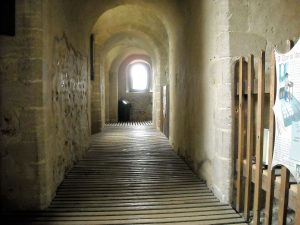 Genesis 1
Genesis 1
First on our “tour” of the dimly lit chamber of the Old Testament Scriptures, we view the Spirit of God as Almighty Creator. The first glimpse we have of the Spirit in the Bible is in its second verse. Now the earth was formless and empty, darkness covered the surface of the watery depths, and the Spirit of God was hovering over the surface of the waters (Genesis 1:2 CSB).
If you were reading the Hebrew Bible for the first time, you might wonder what the “Spirit of God” meant. The word translated “Spirit” is ruach, which means at its basic level “the expulsion of wind or breath, the idea of air in motion” (Ferguson, The Holy Spirit, p. 16). The first-time reader, or any perhaps reader unfamiliar with the clearer teaching of the New Testament Scriptures, might think this was merely a poetic way of describing God’s creating work.
The idea of ruach is not so much immateriality as energy or power. See, for example, 1 Kings 10:4-5; Micah 3:8. By his ruach, the Lord, Yahweh, gave power to the judges (Judges 3:10; 14:6), called his prophets to their work (Ezekiel 3:12,14), created the stars (Psalm 33:6) and governs the world (Isaiah 40:7; 59:19). All these verses proclaim an extremely powerful Person. So then, we can learn how irresistible is the ruach of Yahweh. Can you remember the old commercial about EF Hutton? “When EF Hutton speaks, people listen?” Not exactly! But when the Holy Spirit of God speaks and works with his almighty power, people do listen and respond to his gentle whisper.
As you read the text more carefully, you notice something: The Spirit of God was hovering over the waters.” The word for hover is used only two other times. In Jeremiah 23:9 it is used poetically of bones, but significantly, it is used in Deuteronomy 32:11 of God’s caring action over his people Israel. The picture in Genesis 1:2 is of the ruach of God working over the formless creation to form it to be a place where people, who could seek the Lord, would live (Isaiah 45:18).
In addition, we can learn more about the ruach of God from Genesis One. Look at 1:26 carefully. God is speaking on the sixth day of creation, and he says, “Let us make man in our image….” Within the context of this passage, the only possible reference point of creative power is the ruach of God, the Spirit of God, mentioned in verse two. Thus in the first chapter of the Bible, we have witness to the Spirit of God being addressed in a personal way as a divine Person. This alone does not prove the Trinity, but it is a signpost pointing to it. This agrees with other Old Testament references about the Spirit’s work in creation (Job 26:11-14; 33:4) and in his ongoing renewal of creation (Psalm 104:30).
On this first step on our “tour”, we learn that the Spirit of God has divine power to bring God’s plan of creation into full realization. As the Son of God made the world (John 1:3; etc.), the Spirit of the Lord acted with him, bringing all to the Father’s perfect design. We are, therefore, considering someone who is almighty and wise, and we do well to bow before him and worship. He knows the mind of the Lord and has all-sufficient power to perform his will perfectly. He is more than able to help us.
Grace and peace, David

 In the heavens God has pitched a tent for the sun. It is like a bridegroom coming out of his chamber, like a champion rejoicing to run his course. It rises at one end of the heavens and makes its circuit to the other; nothing is deprived of its warmth (Psalm 19:4c-6 NIV).
In the heavens God has pitched a tent for the sun. It is like a bridegroom coming out of his chamber, like a champion rejoicing to run his course. It rises at one end of the heavens and makes its circuit to the other; nothing is deprived of its warmth (Psalm 19:4c-6 NIV). Psalm 146:1-10
Psalm 146:1-10